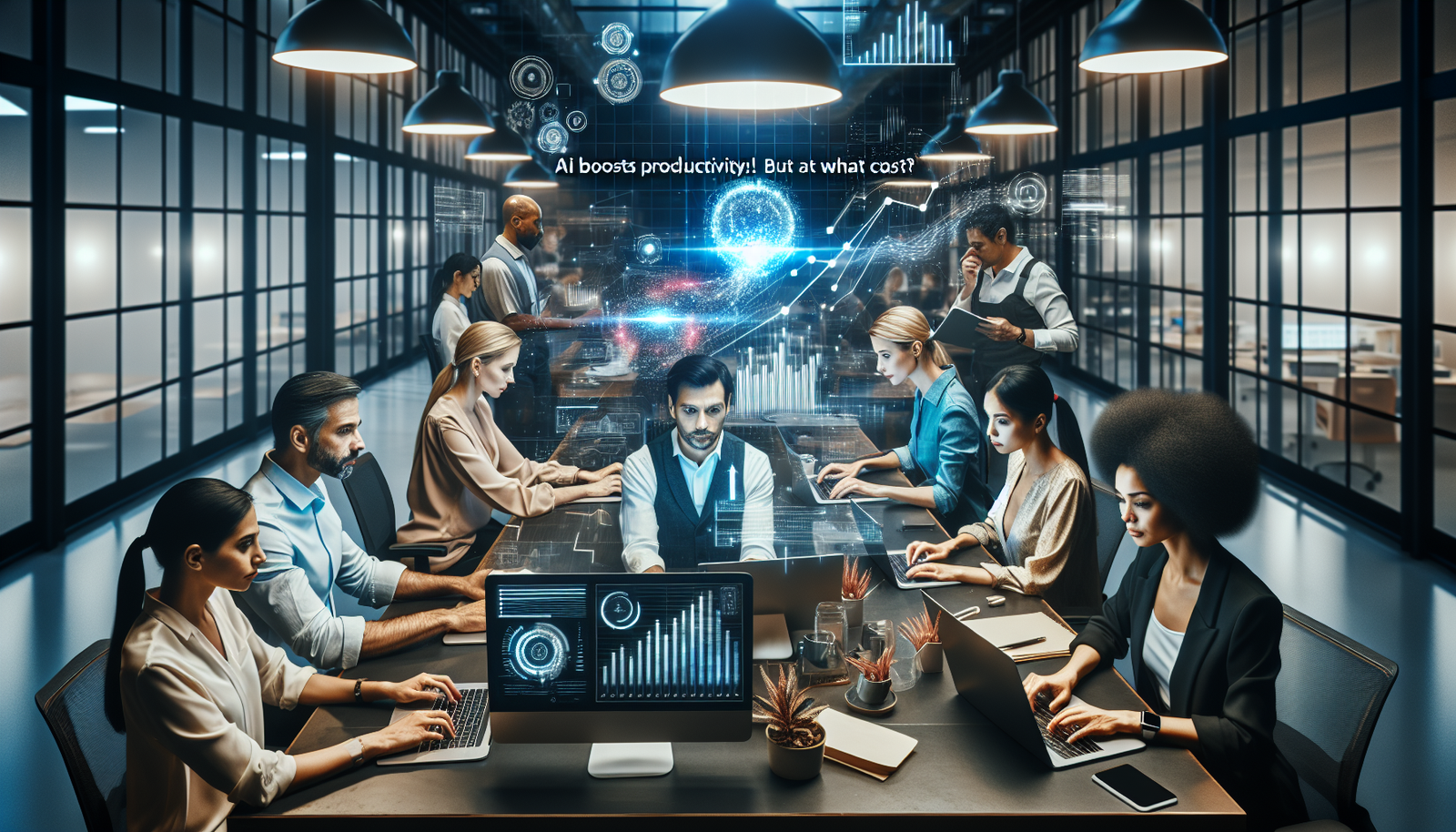The artificial intelligence (AI) is revolutionizing the professional world, promising remarkable productivity gains. This phenomenon should not overshadow an unavoidable reality: substantial improvements do not always come with a reduction in working hours. Companies are engaged in a frantic race to integrate AI, but the expected benefits in terms of work intensity and efficiency remain ambiguous. Far from lightening the workload, this technology could create new expectations regarding performance. The promises of AI are mixed. _A skewed perception could lead to profound disillusionment._ The reality of professional intensity is constantly changing. _Every technological advance requires an increasing human investment._ Behind the illusion of ease lies a complex reality. _Adapting to new standards becomes the true challenge._
Deep Transformations in the World of Work
The emergence of artificial intelligence (AI) in companies brings significant changes to the organization and management of work. Companies are investing heavily in these technologies to improve their efficiency and productivity. However, these apparent gains do not always translate into a reduction in working hours or task intensity.
The Productivity Paradox
The phenomenon often referred to as the “productivity paradox” occurs when the adoption of AI does not lead to the expected improvements. Several studies show that increased use of these tools can even generate friction within teams and harm overall performance. Indeed, poorly managed transitions can lead to work overload, complicating employees’ tasks.
The Balance between Productivity and Workload
The productivity gains associated with AI do not necessarily lead to a relief of work. Several companies find that, despite improved efficiency, the pressure on employees remains. New technologies allow for an increase in the amount of work done in a day, but this does not reduce the total volume of work required.
Impacts on Work Time Management
It is essential to note that technological improvements encourage a reorganization of work processes. Employees sometimes find themselves compelled to accomplish more tasks in the same time frame. Rather than alleviating the workload, AI may lead to an intensification of daily tasks. The effects of technology on time management remain ambivalent.
A Necessary Reflection on the Future of Work
As AI continues to integrate into the professional environment, reflection on the balance between productivity and employee well-being is crucial. Initiatives aimed at improving company culture and empowering employees are becoming essential. Organizations must consider strategies to avoid overload situations within teams.
Prospects for AI Adoption
Through the feedback from pioneering companies, it is evident that any adoption of AI must be carefully planned. This requires a thoughtful approach to ensure that employees are not overwhelmed. Furthermore, proper training for teams will facilitate a smooth transition and optimize the use of artificial intelligence tools.
Conclusion of Current Observations
Reflections on artificial intelligence reveal a nuanced reality. The promises of productivity gains, while motivating, do not guarantee a reduction in working hours. The challenge lies in the ability of companies to balance performance and the well-being of their employees in this technological era.
Frequently Asked Questions about Artificial Intelligence and Productivity
What are the main expectations regarding productivity gains related to artificial intelligence?
Companies generally hope that artificial intelligence will improve process efficiency, enhance the quality of products and services, and foster innovation, but these gains do not systematically translate into a reduction in working hours.
How does artificial intelligence impact work time management?
While AI can optimize certain tasks, it does not necessarily lead to a decrease in working hours, as companies often choose to reinvest these gains by intensifying other activities.
Can automation with AI lead to less work intensity for employees?
Not always. Even if some tasks are automated, it can sometimes lead to an increase in other responsibilities that maintain or increase work intensity.
What are the long-term implications of AI on employment?
In the long term, AI could redefine certain positions while creating new ones, but the implications do not simply translate into reductions in hours or workload.
Why are productivity gains from AI sometimes overestimated?
Studies show that the effects of AI on productivity can be limited by organizational friction, complex integration, and uneven adoption of suitable technologies.
How can business leaders better manage expectations related to AI and productivity?
Leaders need to communicate clearly about the potentials of AI while acknowledging the limits. A realistic approach can help temper expectations and prepare the organization for changes.
Which sectors are most affected by AI in terms of work intensity?
The services sector and those related to technology, such as finance and marketing, often feel strong impacts by intensifying certain tasks while optimizing others through AI.
How can companies balance productivity and well-being at work in the context of AI?
Companies must invest in training, create flexible work environments, and establish policies that preserve employees’ mental health while leveraging the productivity offered by AI.






